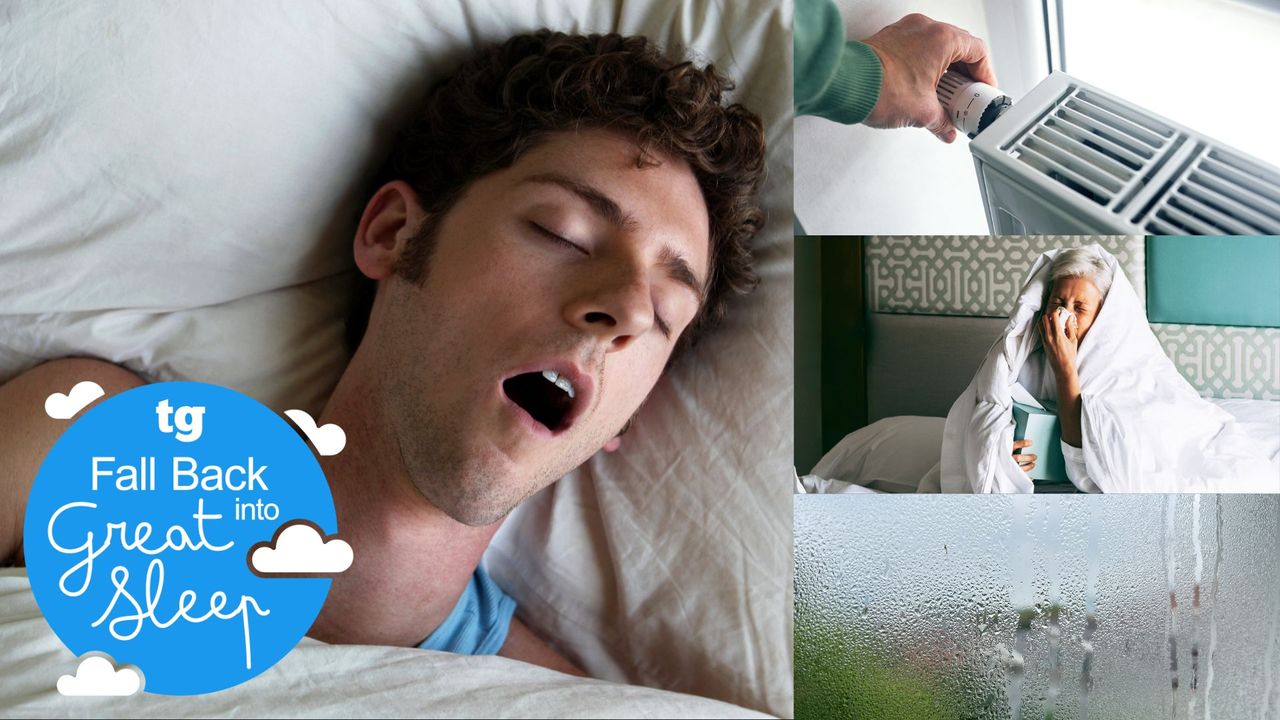As winter approaches, many people experience an increase in snoring, which can disrupt sleep quality and pose potential health risks. According to leading sleep experts, the combination of cold, dry air and indoor heating can exacerbate snoring during these months, impacting how well individuals rest at night.
Dr. William Lu, medical director at Dreem Health, explains that the winter environment can dry out and irritate the throat and nasal passages, leading to narrowed airways. This condition often results in tiredness during the day, even if sufficient hours of sleep have been achieved.
The issue is compounded by seasonal colds, sinus congestion, and allergies, which can obstruct nasal breathing. “When airways are partially blocked, it makes breathing less efficient,” Dr. Lu states. He notes that these obstructions may lead to brief awakenings during sleep, preventing the body from reaching deeper, restorative stages of rest.
### Understanding Snoring’s Impact
For those who sleep alone or with heavy sleepers, recognizing the signs of increased snoring can be a challenge. Dr. Christopher Allen, a board-certified sleep medicine physician and sleep science advisor at Aeroflow, highlights symptoms like waking up with a dry mouth or headaches, which can indicate breathing issues related to snoring or untreated sleep apnea.
Feeling fatigued and having difficulty concentrating during the day can signal disrupted sleep due to snoring. Dr. Jordan Weiner, a sleep apnea specialist, adds that snoring can interfere with the brain’s necessary functions during sleep. “Frequent disruptions prevent the clearance of adenosine, a chemical that accumulates during wakefulness and is cleared during deep sleep,” he says.
### Strategies to Reduce Snoring
Experts recommend several methods to mitigate snoring this winter. Here are five effective strategies:
1. **Utilize Nasal Strips**: Nasal strips, such as the menthol variety from Breathe Right, can help open up nasal passages, improving airflow and reducing mouth breathing, which contributes to snoring.
2. **Adjust Bedroom Humidity**: The winter air can exacerbate congestion. Using a humidifier can alleviate dryness in the nose and throat, while a dehumidifier can help if the environment becomes too humid. Dr. Allen emphasizes that maintaining optimal humidity levels can significantly improve sleep quality.
3. **Take a Warm Bath or Shower**: Taking a warm bath or shower before bed can help clear nasal congestion. The steam generated can open nasal passages and promote relaxation, making it easier to breathe while sleeping.
4. **Limit Alcohol and Smoking**: Alcohol acts as a central nervous system depressant, which can worsen snoring and sleep apnea by relaxing throat muscles. Dr. Weiner advises avoiding smoking, as it leads to respiratory system issues and increased mucus production, further aggravating snoring.
5. **Change Sleeping Position**: Sleeping on one’s back can exacerbate snoring. Experts suggest transitioning to side sleeping, which keeps airways open. Strategies like using a body pillow or wearing a shirt with a tennis ball pocket can help maintain this position during the night.
The combination of winter’s environmental factors and personal health habits can significantly influence snoring. By adopting these expert-recommended strategies, individuals may improve their sleep quality and overall well-being this winter season.



































































